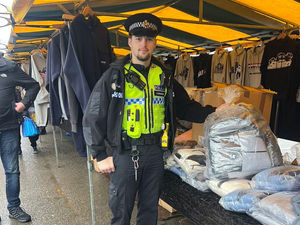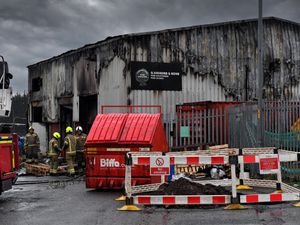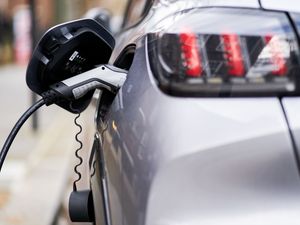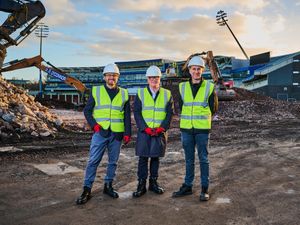Wolverhampton business aiming for sky with airships
A business based at Wolverhampton Business Airport aims to become the first in the world to operate a new generation of airships.
In two years time Straightline Aviation says it will have a fleet of four to six hybrid airships flying passengers and freight in normally inaccessable areas of Africa, Canada and even China.
But not over the Black Country or Staffordshire, although the offices at Wolverhampton Business Airport, at Bobbington, will remain the company's home as it grows.
Company bosses Mike Kendrick and Mark Dorey formerly ran Richard Branson's Virgin airship and hot air balloons business, while Mr Kendrick has become better known for his Mineseeker Foundation, which works to find and remove mines in Africa.
The duo are in advanced talks with the two companies currently developing the new airships, Hyrbrid Air Vehicles in the UK and US aviation giant Lockheed Martin, to become their first customer. Both companies expect to have their airships ready to fly commercially in 2018.
Filled with helium - rather than the hydrogen often blamed for the Hindenberg disaster in 1936 – the new airships use a combination of lighter-than-air, aircraft and helicopter technologies – hence the term 'hybrid'.
They can land on any piece of cleared ground or even the water.
"No airport, no problem," said Mike Kendrick.
"These aircraft will transport cargo and passengers to previously inaccessible locations around the globe.
"The first versions will carry up to 20 tons of freight as well as passengers but they are scalable to many times that number.
"The current versions are about the size of the Molineux football pitch," said Mr Kendrick.
"They can land almost vertically on unprepared ground, grass, sand, snow or even water and, as they are not lighter than air, have excellent ground handling characteristics."
As well as working in developing countries lacking modern transport networks, the airships would be ideal for oil and gas exploration companies working in inaccessible areas, he said.
"It can cost these companies up to £20 million a mile to build new roads to some of these sites. One company we have talked to said if they had been able to use one of these hybrids on one particular site they could have saved $900 million."
"They are also cost 70 per cent less to operate than other aircraft and their carbon footprint is 90 per cent smaller."
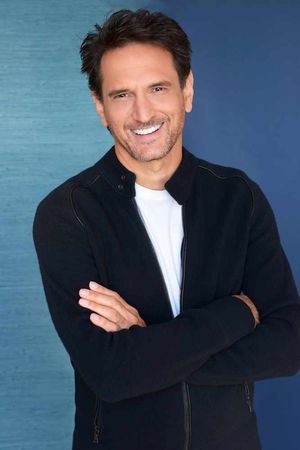
The company is talking with potential customers and is now looking for investors, having already secured wealthy US toy inventor Brian Kessler as its chairman.
Explaining the name Straightline Aviation, Mr Kessler said: "It's what we're about – the shortest distance connecting two points is a straight line - which is exactly what these aircraft offer. No loading on to trucks, then on to ships or airplanes, then back on to trucks or trains to get to the final destination.
"By going in a straight line from A to D we eliminate the multiple-handling costs and time at B and C as well as the expensive road and airport infrastructure requirements and we do all this at a lower cost and an incredibly low carbon footprint. What's not to love about that?"
The company has also recruited David Tait, the man who built Virgin Atlantic in the US, as its president. Mr Tait was awarded an OBE in 2001 for "services to British aviation in the USA".

